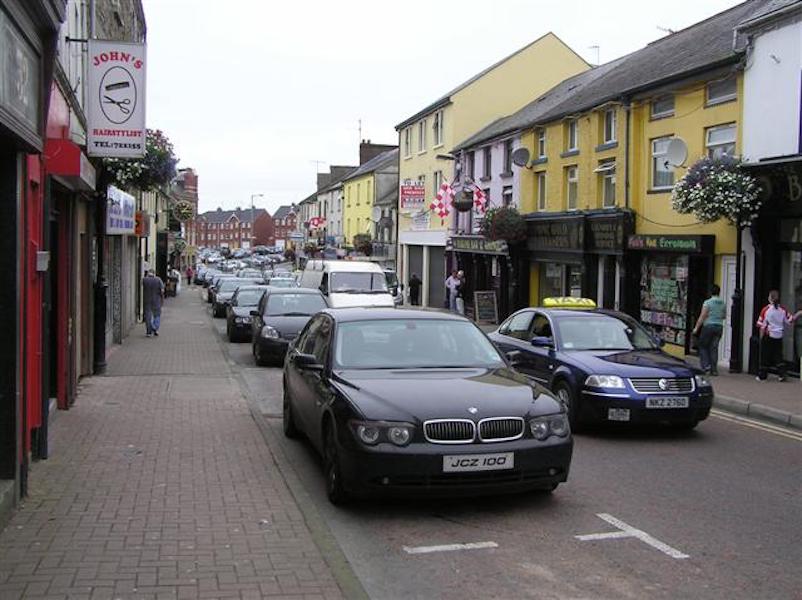
Mid Ulster District Council is losing £600,000 per month in income, its acting Chief Executive has said.
The Chief Executive highlighted the figure following a proposal from SDLP group leader, Councillor Malachy Quinn.
Councillor Quinn had asked members if Council could help support charities and local food banks in the run up to Christmas.
“We are all aware that over the last couple of months poverty has been top of the agenda,” said Councillor Quinn.
“Across the UK we had Marcus Rashford who had to embarrass the British Government and here in the north we had Dr Julie-Anne Maney talking about the effects of poverty here.
“The line she used was poverty starts to effect you from the moment of conception.
“Poverty has an impact on every aspect of a person’s life.”
Councillor Quinn continued: “I am asking Council to give money to St Vincent de Paul Society and the Salvation Army as well as local food banks.
“I am not asking for a figure to be put on it tonight, I am asking for councillors to support this idea and call on officers to bring a paper to the next meeting of the policy and resources committee with more detail.
“I think it would go a long way. As a gesture to our people, it would be a great thing for this council to offer.”
Council’s acting Chief Executive Adrian McCreesh said the sentiments of the proposal are “positive and constructive” but urged caution.
“When you start selecting individual groups or organisations it can be a minefield, “said Mr McCreesh.
“Everything we do, we do openly and transparently by way of a criteria based process.
“Specific to this issue, the Council brought £100,000 to the table as part of the first allocation but is also losing £600,000 per month of income.
“We are trying to find a balance between maintaining our responsibility as an organisation and not increasing the burden on the ratepayer as we set the rates going forward next year.”
However, Mr McCreesh said he was of the belief there was an alternative approach that would address Councillor Quinn’s aims.
“The Department for Communities has been very constructive, supportive and generous,” said Council’s acting Chief Executive.
“In the most recent tranche of funding that we spent on their behalf up until September, we allocated a further £156,000 across food banks, some of that was for PPE as well.
“We uplifted that as a council and made a further financial contribution and you will recall we allocated a further £100,000 towards advice services.
“In the more recent tranche, we are expecting £166,000 and up to about £80,000 of that can be allocated to our food banks straight away and some of that can be allocated to counselling services and debt management organisations across our district.
“That money is being geared up at the moment and our community team will move on the allocation of that funding forthwith, without doubt.”
Mr McCreesh also advised that there may be further tranche of funding.
“We understand that there may be another £100,000 plus coming from the Department to us for further support,” he said.
“If that comes and if we can manage that and get appropriate agreement through the development committee and shaped by members we will not be found wanting in getting that allocated through Christmas.
“However, the more likely scenario is that will hit the ground in January.
“That does not disappoint us because while we want to maximise support this side of Christmas, we recognise people still have to eat in January and February and things could be even tougher then.
“With that, I think this Council will have demonstrated its ability to manage funds and that it is tune with its citizens.”
Having listened to the acting Chief Executive, Councillor Quinn said it was vitally important for the Council to outline exactly what is being spent and where it is being spent.
“All too often elected reps are being asked what are rates being paid for etc…”, said Councillor Quinn.
“I think it is important for people out there to know what we are doing and to know that we are looking after our most vulnerable citizens.”
Meanwhile, Mid Ulster District Council has confirmed more than 400 of its employees could be in line for a pay rise – should the Chancellor’s public sector pay rise promise be matched in Northern Ireland.
Last week, the Chancellor of the Exchequer, Rishi Sunak MP, delivered a spending review in the House of Commons and whilst at the dispatch box he promised a pay rise for some public sector workers.
The Chancellor said those earning less than the median wage of £24,000 would be guaranteed a pay rise of at least £250.
He also confirmed the national living wage would increase by 2.2 per cent to £8.91 an hour for those aged 23 and over.
A spokesperson for Mid Ulster District Council said that for councils in Northern Ireland pay negotiations are undertaken on a national basis via the National Joint Council (NJC).
As such, the precise impact of the Chancellor’s announcement is, as yet, unknown.
However, the spokesperson confirmed the announcement could see an increase to the wages of more than 400 Council staff.
“If it is to be reflected in the pay award for 2021-2022, then we estimate that the cost to the Council would be in the region of £137,000 (inclusive of employer national insurance) based on approximately 410 qualifying employees,” said the spokesperson.
However, the spokesperson did confirm the national minimum wage increase announced would have no impact on Council employees.
“The Council is a Foundation Living wage employer,” said the Council spokesperson.
“This means we pay a minimum rate of £9.30.
“Given this is higher than both the current and proposed new National Minimum Wage, the Chancellor’s statement will have no impact on our staff or budgets.”





